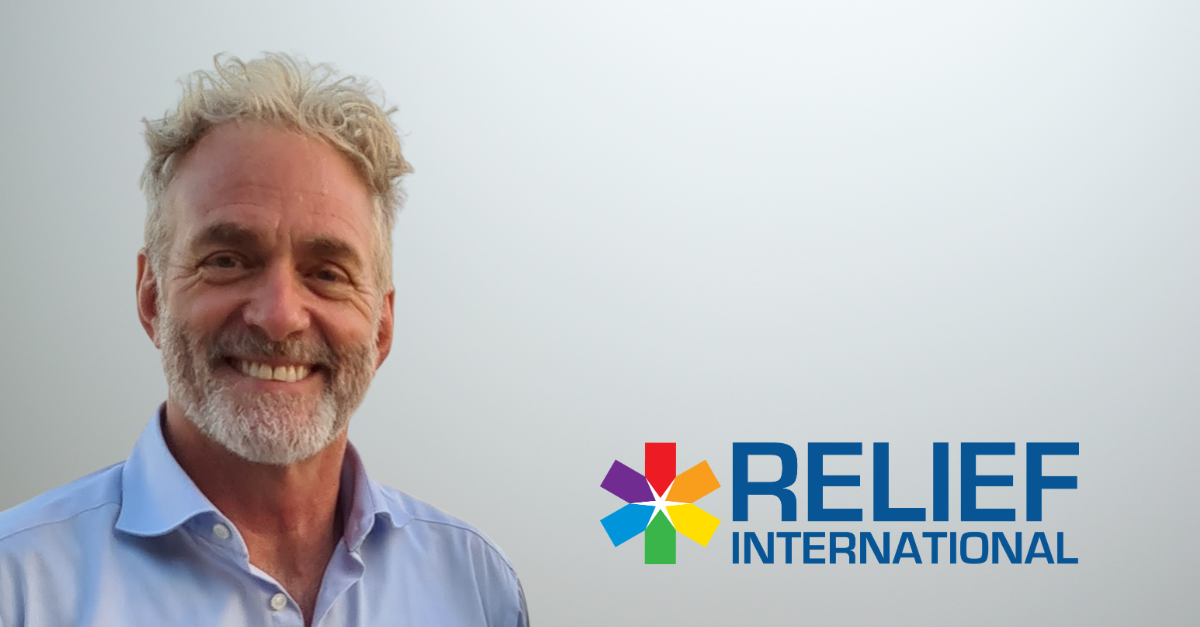It was with a healthy mix of excitement and humility that I entered 2023, nearly two months into my role as CEO of Relief International. I began my tenure as CEO with the goal of taking the time to connect in person with as many team members, colleagues, and partners as possible, and to learn from their experiences. I wanted to know who we are as an organization, and also who we need to be. As I reflect on this year, I cannot help but think of the incredible individuals I’ve had the privilege to meet and work with. Each person has a unique story, passion, and vision, and I wish I could introduce them to every one of you.
Many of us now are returning home for the holidays, ready to share our stories and reconnect with family and friends. For me, having spent many years working and living around the world, returning home has always been a joy. Our family lingers at the table after meals, telling stories and recounting experiences, sharing what has been important to us and what we’ve learned. For me these moments of reflection are often an opportunity to remark on colleagues whose lives and values have influenced my own values, as well as my approach to leadership. In that spirit, allow me to introduce you to just a small handful of the incredible people that I have had the pleasure to meet, work alongside, and serve this year.
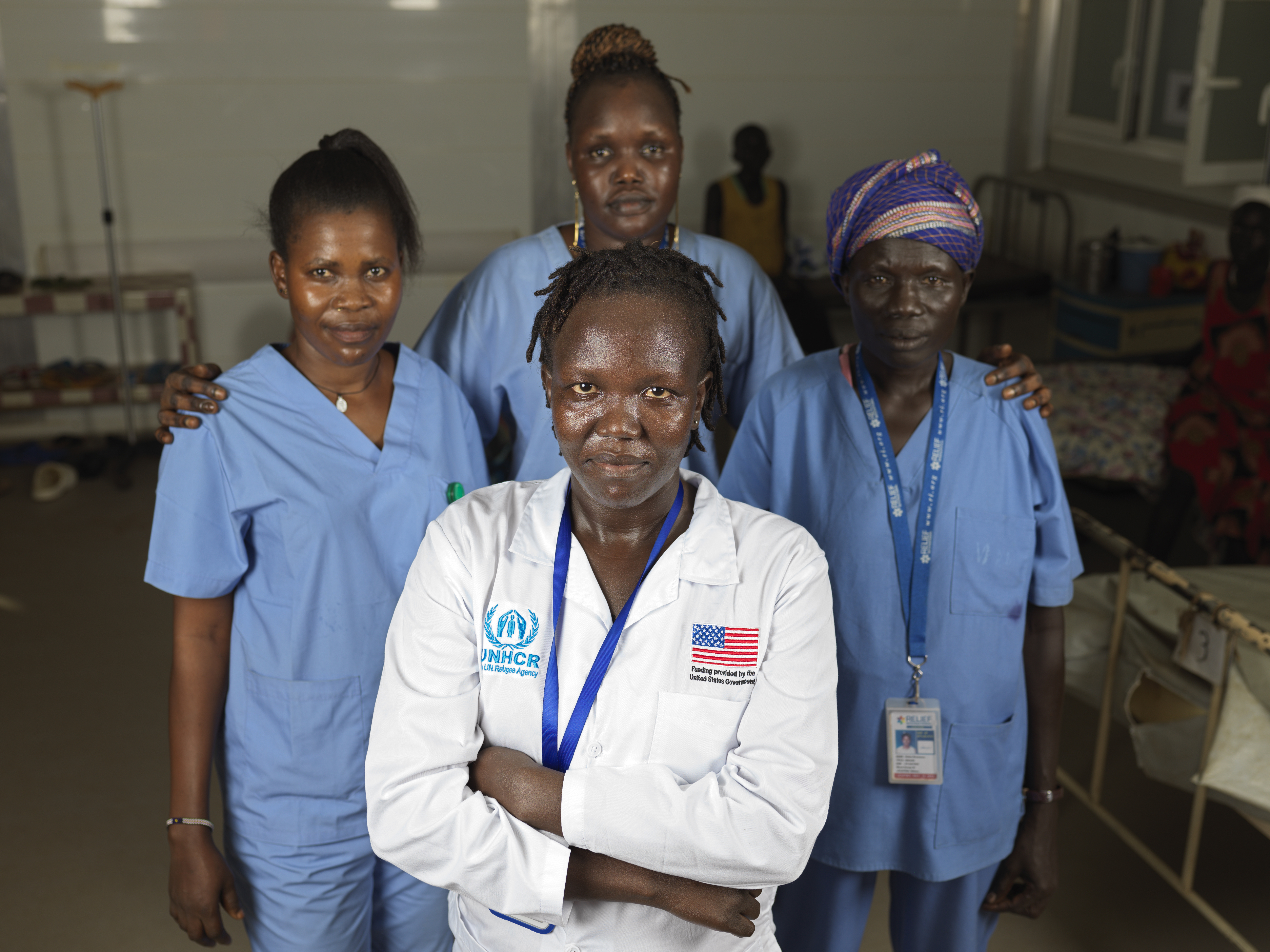
The Midwives of Relief International
Around 11 am one morning while visiting a health clinic in remote Maban, South Sudan, I asked the midwife on duty if there had been any births that morning. She replied “Yes, at eight.”
“One baby at 8 am?” I asked. “No, eight babies born this morning,” she corrected.
Eight babies born in one morning, in one small clinic, in one corner of Northeastern South Sudan. In Relief International-run primary healthcare facilities in Maban refugee camps, 96.6 percent of deliveries are attended by skilled health personnel, a significant improvement compared to the national average of just 40 percent. Relief International operates clinics in Maban that have never once lost a mother since operations began in 2011. This fact contributes significantly to exponentially lower maternal and infant mortality rates than the national averages, and illustrates the tremendous impact of Relief International’s work.
While in Panjshir, Afghanistan a few weeks ago, I met Relief International’s on-call midwife who travels to remote areas throughout the Hindu Kush mountains to attend the births of mothers who would otherwise have no healthcare before, during and after childbirth. She told me, “I’m here and ready for the women of this community 24/7.” Relief International’s midwives offer skilled support and guidance to thousands of women around the world day in and day out.

Our Teams on the Frontline of the Türkiye/ Syria Earthquake Disaster – Responders and Survivors
Geographically, Türkiye and Syria lie on complex seams of tectonic activity, where there is relative certainty of earthquake activity. This is such a difficult place to rebuild from, both practically and psychologically. Relief International lost members of our team in Syria as a result of the February 6th earthquake, and many team members on the both sides of the border lost homes and were forced to sleep in cars, yet immediately sprang into action to help lead our humanitarian response efforts.
When I visited our Relief International team members in Türkiye, I realized that many were refugees themselves from Syria. On both sides of the border our team members were both survivors and responders, actively leading recovery efforts. Their skill, and heart, and bold bias for action in the face of their own personal loss is a profound example of the humanitarian leadership within Relief International.
Jeremiah and I Talk Snakes and Flooding in South Sudan
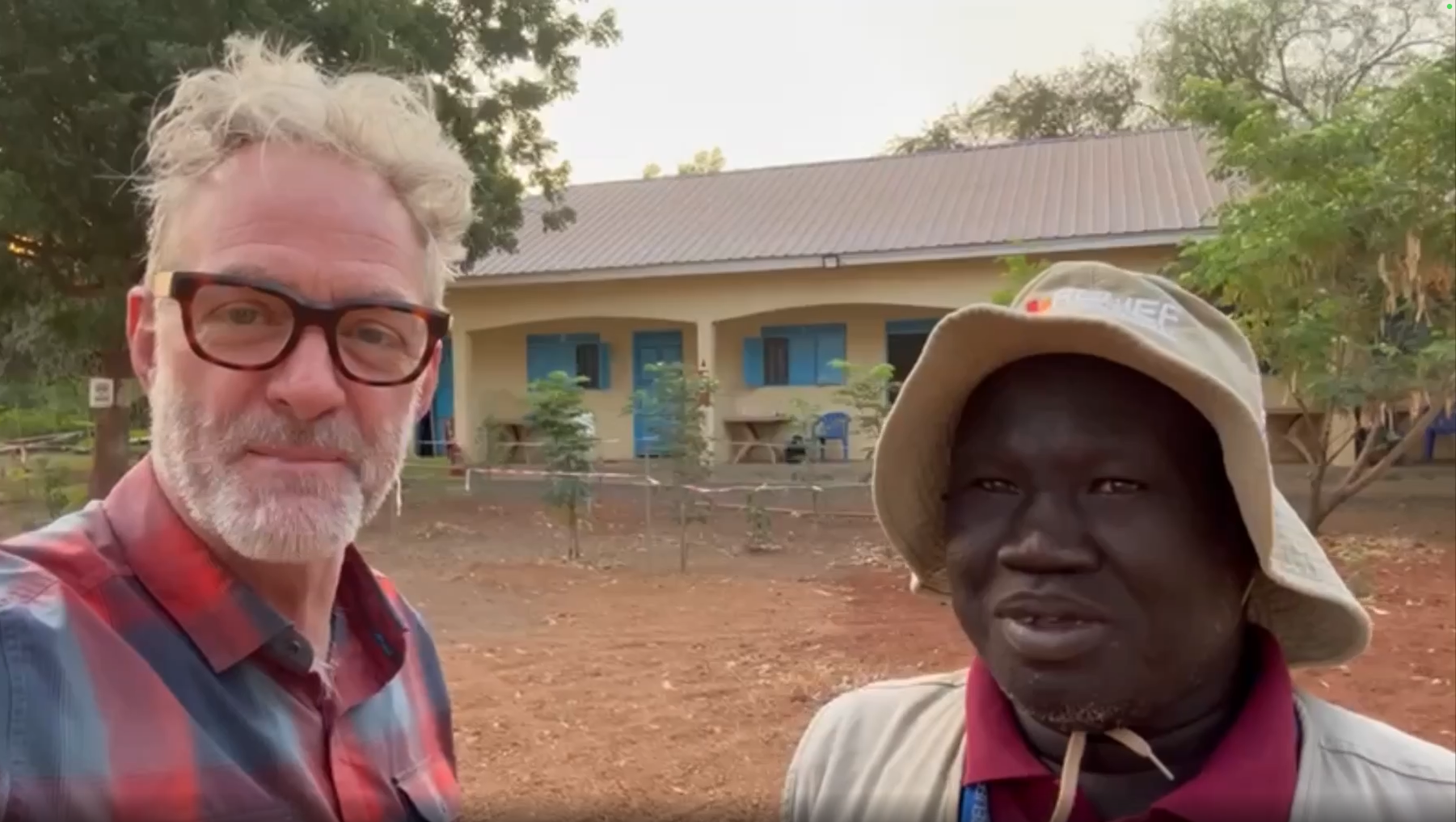
With Jeremiah in Maban, South Sudan
© Craig Redmond
I ask Jeremiah how he is able to navigate the complexities of this Northeastern region of South Sudan. He says simply, “I am a son of Maban.” Using his deep ties in the community, he works to ensure that our teams of doctors, nurses, and midwives can continue to do their work safely, no matter what. On top of persistent regional and local conflict, South Sudan is in a battle against the ravages of climate change. More than a million people are in desperate need of humanitarian assistance as a direct result, as weather anomalies are becoming more extreme, and more common. Four years in a row now, the country has been impacted by enormous floods so sudden and persistent that the water is unable to recede. This creates massive lakes of stagnant viscous water that among other dangers, harbors snakes, Jeremiah says, not to mention insect-borne disease. Our teams – the sons and daughters of South Sudan – demonstrate the importance of local knowledge in navigating the impacts of climate change as they manage to deliver medical assistance, reach expectant mothers, and work with communities to combat malnutrition through some of the most challenging terrains on this planet.
Secondary Students at Hai Al Ulimat Girls’ School
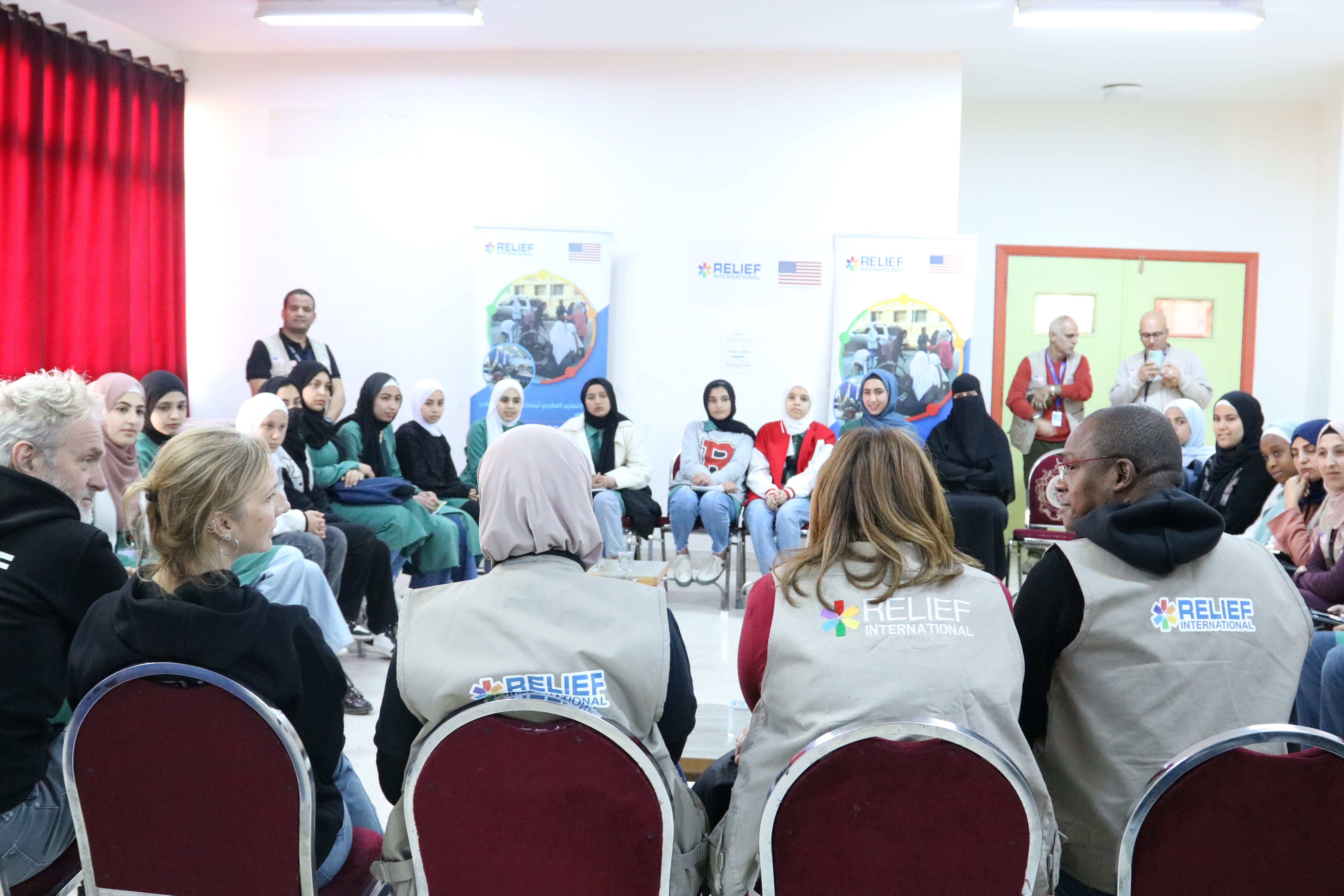
Students in their junior year of high school at Hai Al Ulimat Girls’ School in Jordan
© Relief International
“We came to this camp because we knew we could get an education for our girls.”
Around the world, 129 million girls are unable to attend school. The Syrian refugee parents I met in Za’atri camp in Jordan did not want their daughters to be lost in this staggering number. They are strongly committed to educating their daughters, many of whom started attending Relief International remedial education classes almost a decade earlier. The ambitions their daughters have for themselves are even stronger. The young women I met at Hai Al Ulimat Girls’ school describe wanting to continue their education to become doctors or teachers and to return in order to serve their communities. Their vision of the future is clear and their drive palpable.
This memory is bittersweet. Since my visit earlier this year, multilateral funding for these vital education programs has been cut as global priorities shift away from protracted refugee settings like Jordan, toward other crises. We continue to seek alternative funding to support the ongoing education for refugee women.

Rowida Reflects on Decades of Change in Darfur
I visited our teams in Khartoum and North Darfur, Sudan in March 2023, just a little over a month before devastating conflict would erupt throughout the country.
Rowida, our Nutrition Manager, shared with me how our work in ZamZam camp in El Fasher North Darfur has grown and what has changed over the almost 18 years she has worked for Relief International there.
“Oh, everything” she said. “We were only one building back then.”
Indeed, in ZamZam camp our facilities have grown to a network of buildings and solar-powered cold chains and water points where community members can access quality healthcare, nutrition, and protection services. This comprehensive facility serves as a vital anchor for the community.
Rowida’s and the rest of the team’s commitment to this locally-led primary healthcare system that forms the foundation of community resilience would be essential to our ability to continue vital healthcare services as the conflict raged on through 2023. Full service, primary health care facilities run by national doctors, nurses and midwives, like those I saw in North Darfur, will continue to be the centerpieces of Relief International’s efforts to help build greater resilience in tough places around the world.
Relief International, a Team on the Rise
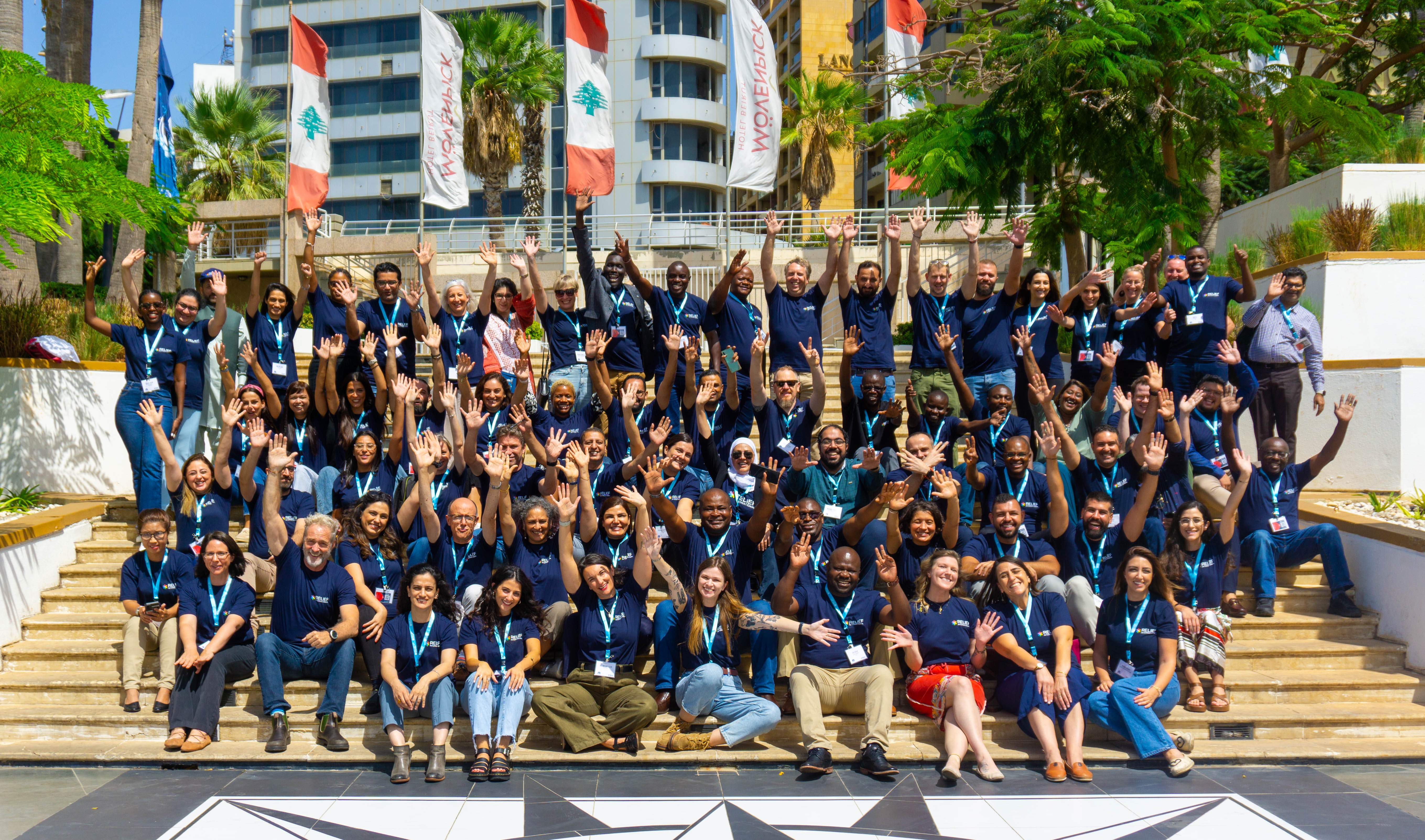
Relief International team members in Beirut, Lebanon
© Ghadeer Barri
In September, members of the global Relief International team gathered in Beirut, Lebanon for our first ever Rise Summit, three days of intensive meetings on strategy, culture and leadership. Why did we call it Rise? We chose the name because in many ways, Relief International is in the process of rising up.
We are rising with a refreshed organizational strategy that unites our purpose and actions to meet this extraordinary moment in time that leaves more communities than ever impacted negatively by climate change, conflict and disaster. We are lifting up and celebrating the aspects of our organizational culture that will help us fulfill our mission. We are telling our stories boldly, internally and externally, lifting our voices to build connection among our teams and to amplify the voices of the communities we partner with globally, as well as to influence policy makers and attract resources critical to achieving our mission around the world. We are growing as leaders by developing our own abilities to adapt to the complex challenges we face and we are rising by celebrating and appreciating the contributions of those around us.
—
As we enter 2024, I am reaffirmed in my belief that our world’s complex problems are only solved by engaged leaders at all levels — leaders who have the vision and drive to transcend geographical borders, break down sectoral silos, and create connections – a seamless and joyful network of action and learning – across fields of experience and global communities. At the close of my first year at Relief International and my 30th year working in international relief and development, I feel inspired by the leaders in our ranks, leaders like Rowida, Jeremiah, our midwives, and our teams in Syria and Türkiye. And I am inspired by the opportunities before us to make positive, even transformational, change for thousands of communities around the world.
What it will take is our clear strategy accompanied by a set of concrete targets. It will take a network of like-minded national and international partners. It will take consistent learning and communication. It will take resources that allow us to respond immediately to global events, as well as deepen our expertise for longer-term engagement. It will take excellent leaders like the ones I met and introduced to you here. What they do — and the context in which they do it — is extraordinary. I can’t imagine a more remarkable team or journey.
Craig Redmond
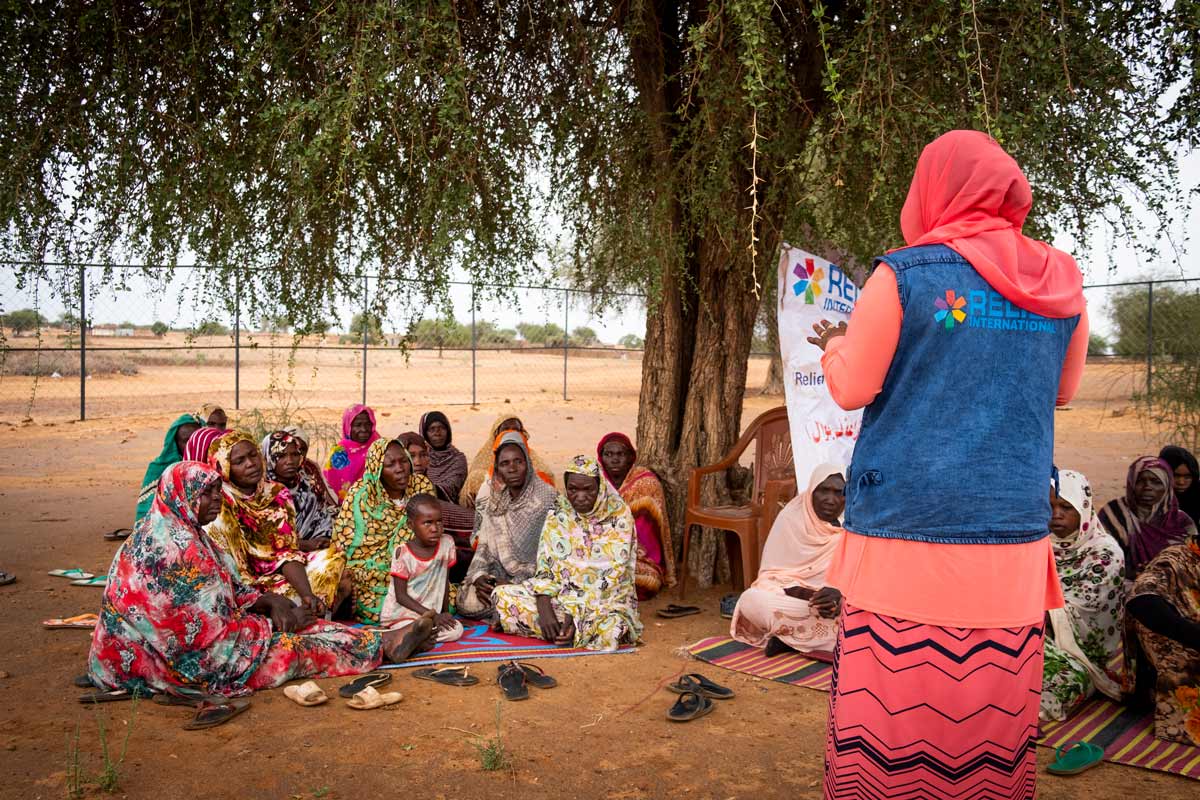
Support Relief International
With a donation today, you can help us continue our essential work with communities around the world!
